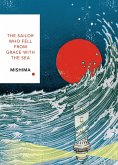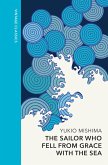'In this masterpiece Kawabata, his brush dipped in silver, renders all the excruciating anguish and beauty of post-war Japan' Edmund White
With the Second World War only a few years in the past, and Japan still reeling from its effects, two sisters - born to the same father but different mothers - struggle to make sense of the new world in which they are coming of age. Asako, the younger, has become obsessed with locating a third sibling, while also experiencing love for the first time. While Momoko, their father's first child - haunted by the loss of her kamikaze boyfriend and their final, disturbing days together - seeks comfort in a series of unhealthy romances. And both sisters find themselves unable to outrun the legacies of their late mothers. A thoughtful, probing novel about the enduring traumas of war, the unbreakable bonds of family and the inescapability of the past, The Rainbow is a searing, melancholy work from one of Japan's greatest writers.
Translated by Haydn Trowell
With the Second World War only a few years in the past, and Japan still reeling from its effects, two sisters - born to the same father but different mothers - struggle to make sense of the new world in which they are coming of age. Asako, the younger, has become obsessed with locating a third sibling, while also experiencing love for the first time. While Momoko, their father's first child - haunted by the loss of her kamikaze boyfriend and their final, disturbing days together - seeks comfort in a series of unhealthy romances. And both sisters find themselves unable to outrun the legacies of their late mothers. A thoughtful, probing novel about the enduring traumas of war, the unbreakable bonds of family and the inescapability of the past, The Rainbow is a searing, melancholy work from one of Japan's greatest writers.
Translated by Haydn Trowell
This elegant classic by a Nobel laureate portrays a more passionate side of post-war Kyoto ... From maple leave against a wide blue sky to black camellias standing in a bamboo vase, Kawabata's prose gives pride of place to fleeting moments of natural beauty ... at once a well-told story and a loving portrait of a family in transition Christopher Harding Telegraph








